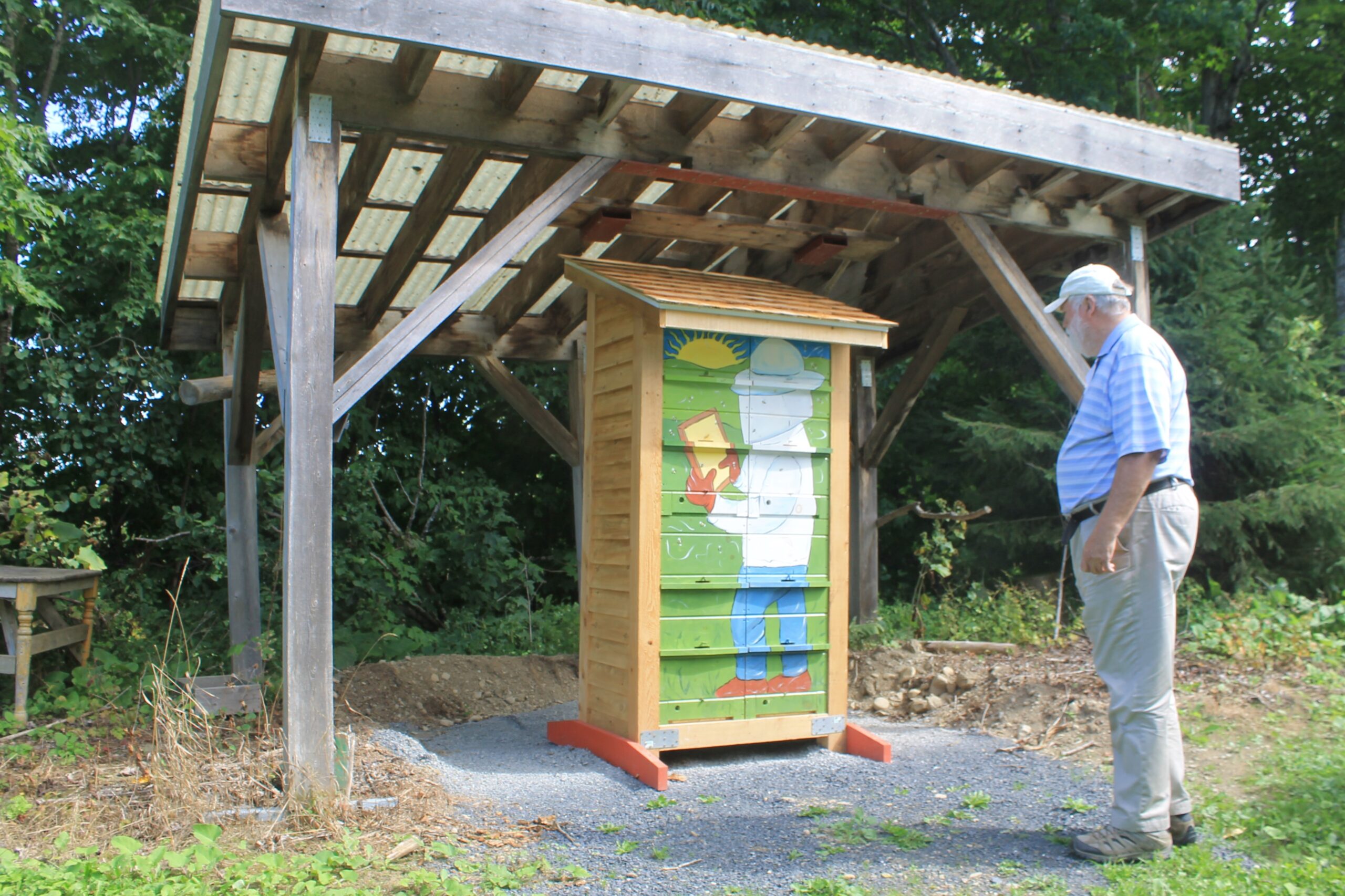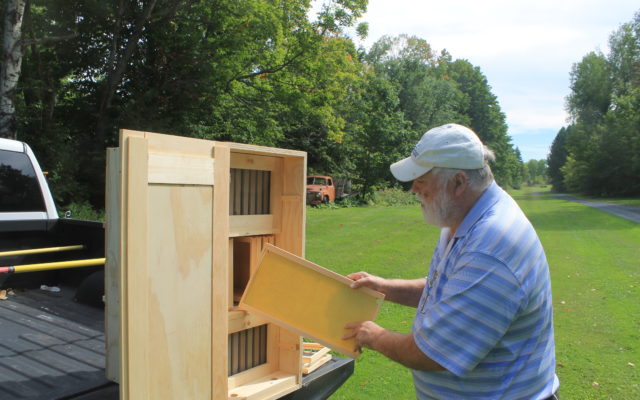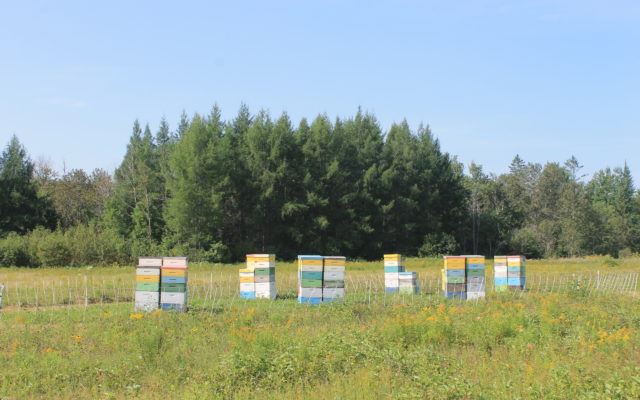
PRESQUE ISLE, Maine — The Aroostook Valley Honey Farm is holding its niche in a challenging market for natural sweeteners, while trying out some new ways to help people raise their own honey bees.
John Hangen of Fort Fairfield, co-owner of Aroostook Valley Honey Farm, said it’s a difficult time to be a small honey business. Although U.S. demand for honey is strong, cheap imported honey is making it harder for domestic honey producers to compete, Hangen said.
“Our wholesale business is being lost because of foreign honey coming into the country from China and Vietnam,” Hangen said. “The honey market is very tough with the foreign importation. People are just looking for the best honey at the best price, and these companies take foreign honey, and don’t tell you that it’s foreign honey. A lot of them mix corn syrup with it, which they’re allowed to do.”
At the same time, Hangen said, Aroostook Valley’s 700 hive business has cultivated a strong customer base within the state and continues to see strong sales with small and in-state retailers. Aroostook Valley’s honey can also be purchased through the business’s website, MaineBees.com.
“We find that in Maine from Fort Kent to Bangor, our customers are wicked good about staying with us. If shelves go empty, they’re on my case. We have a very steady reliable retail customer base that knows all of our honey is from Maine.”
Hangen, a former Easton town manager, co-owns the business with Charlie Jewett, a native Floridian and long-time beekeeper who for years has brought honey bee hives in the summer to northern Maine, where fallow fields and natural meadowlands offer plentiful forage for both honey bees and the many species of native bees.
- John Hangen of Aroostook Valley Honey Farm checks out one his Slovenian-style bee hives in Presque Isle. Based on hive designs from Slovenia, these hives function like a kitchen cabinet and are easier for humans to handle in addition to helping bees fair better in cold seasons. (Anthony Brino)
Hangen and Jewett founded the business in 2013. They bottle the honey at Hangen’s licensed home kitchen in Fort Fairfield and bring the bees to over-winter in Georgia. The business is at the point where they’re not looking to grow, but to sustain their current success while helping promote beekeeping, Hangen said.
“I’m 75. I have no ambitions to continue to grow just for profits,” Hangen said. “My ambition is to satisfy a niche at a pace that we’re comfortable with.”
Hangen and Jewett are working to help more Mainers raise their own honey bees, with a different kind of hive that is easier on bees and beekeepers.
Most honey bees are raised in “Langstroth hives,” the stackable rectangular boxes with removable frames that bees build combs in. These are the hives transported by the truckload around the country to provide pollination to crops like almonds, apples and blueberries.
A different hive design, now catching on with some Northern American beekeepers, is known as “AZ hives,” based on the traditional honey bee hives of Slovenia, where small-scale beekeeping is common and dates back more than 1,000 years.
AZ hives are like a cabinet or refrigerator based inside a tiny bee house, which can be small or as big as a shed or school bus, Hangen said. On one side of the hive, the bees can’t get out, but the keeper can check on them through a screen, while the top level is home to the honeycomb.
“You open this up, pull it out and it’s just like a refrigerator. The best thing about this is the bees don’t get mad. You’re opening one at a time, not the whole cluster of a hive. In Langstroth hives, when you smoke a beehive, the smoke goes down there, the bees think it’s on fire and they all get excited.”
AZ hives are easier to handle for beekeepers and easier to insulate and keep dry during the winter — a major asset in cold regions like Maine, where most beekeepers can expect to lose many if not all of their hives every winter.
Hangen and Jewett have built four AZ hive houses. One is now located in Smyrna, one in Presque Isle and one in Kittery. Designed by Hangen, they were built with cedar frames by the Amish carpenters J&J in Easton and painted by Eagle Lake artist Holly Harwick.
“We want to be able to give these designs to any beekeepers around who want to make their own. We just want to spread the word,” Hangen said. “These AZ hives are good for older folks, people with disabilities or in wheelchairs.”
Hangen said he believes Aroostook Valley is among the first beekeepers in Maine using AZ hives. They likely won’t take off in the commercial beekeeping sector, but it could be ideal for small-scale beekeepers, he said.
“We’re optimistic. We’re doing this not to set up a big business with the AZ hives. We’re doing it to see if it’s successful and see if we can build a half-a-dozen a year to encourage County people to get into the beekeeper business.”
- Aroostook Valley Honey Farm’s bee hives are protected by electric netting in a field off of West Ridge Road in Mars Hill, next to the former Mars Hill Air Field. Aroostook Valley Honey Farm was founded in 2012 by John Hangen and Charlie Jewett, who manage around 700 bee hives each summer in Aroostook County for honey sold primarily in New England. (Anthony Brino)









